
Lofoten War Memorial Museum: A Tribute to History
Explore the Lofoten War Memorial Museum in Svolvær and uncover the rich history of World War II in Norway amidst breathtaking landscapes.
Dive into the poignant history of World War II at the Lofoten War Memorial Museum, an essential stop for tourists in Svolvær. This museum presents a unique exploration of the region's wartime experiences, featuring captivating exhibits that narrate the impact of the war on the Lofoten Islands and its people. Engaging displays and personal stories connect visitors to a significant chapter in Norwegian history, making it a must-visit for anyone traveling through this stunning landscape.
A brief summary to Lofoten War Memorial Museum
- Fiskergata 3, Svolvær, 8300, NO
- +4791730328
- Visit website
Local tips
- Visit during guided tours for in-depth insights into the exhibits.
- Check the museum's schedule for special events and lectures.
- Allow for at least two hours to fully appreciate the exhibits.
- Combine your visit with a stroll around the picturesque town of Svolvær.
- Photography is allowed, but be respectful of the sensitive nature of the exhibits.
Getting There
-
Car
If you are driving, find your way to Svolvær, the largest town in the Lofoten Islands. Use the E10 road which connects all major towns in Lofoten. Once in Svolvær, head towards Fiskergata. The Lofoten War Memorial Museum is located at Fiskergata 3, 8300 Svolvær. Look for parking spaces near the waterfront or designated parking areas in the town. The museum is within walking distance from most parking spots.
-
Bus
For those using public transportation, take a bus to Svolvær from nearby towns like Leknes or Å. The bus service is operated by Lofoten Trafikkselskap, and schedules can be checked on their website. Once you arrive at the Svolvær Bus Station, exit and walk towards the waterfront. The museum is approximately a 10-minute walk from the bus station. Follow the signs towards Fiskergata, and you will reach the Lofoten War Memorial Museum located at Fiskergata 3.
-
Taxi
If you prefer a more direct route, consider taking a taxi from your current location in Lofoten to the museum. Taxis are available in Svolvær and can be booked via local taxi companies. The fare will depend on your starting location, but you can expect to pay around 100-300 NOK for a ride within Svolvær.
-
Bicycle
For a more adventurous option, you can rent a bicycle in Svolvær and cycle to the Lofoten War Memorial Museum. The town is bike-friendly, and the ride along the waterfront is scenic. From the center of Svolvær, head towards Fiskergata, and you will find the museum at Fiskergata 3.
Discover more about Lofoten War Memorial Museum
Iconic landmarks you can’t miss
Lofoten deanery
0.3 km
Experience tranquility at Lofoten Deanery, a captivating church surrounded by stunning landscapes in the heart of Svolvær.

Tjeldbergtind
2.7 km
Discover the breathtaking beauty of Tjeldbergtind, a premier hiking destination in Norway, with stunning views and diverse landscapes for all adventurers.

Untitled (Dan Graham)
12.5 km
Experience the captivating blend of art and nature at Dan Graham's unique installation in Kleppstad, a must-visit for all art enthusiasts.

Sundklakkstraumen bru
17.3 km
Discover stunning views and natural beauty at Sundklakkstraumen Bridge in Leknes, Norway, a perfect spot for photography and relaxation.

Middagstinden hike
27.7 km
Experience the breathtaking beauty of Middagstinden hike in Kvalnes, Norway, where stunning views and serene landscapes await every adventurer.

Figurteatret I Nordland
32.1 km
Discover the enchanting world of Figurteatret I Nordland, where innovative performances and engaging workshops come together in the heart of Stamsund.
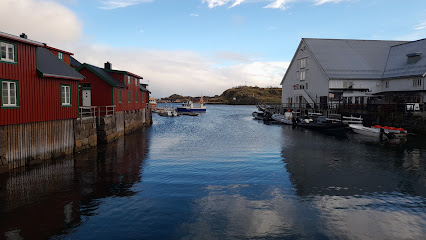
Wikingerboot
32.2 km
Discover the Vikings' legacy at the Wikingerboot, a remarkable historical landmark showcasing Viking shipbuilding and maritime culture in Norway.

Cistercienserklosteret Fjordenes dronning
34.1 km
Explore the serene Cistercienserklosteret in Stamsund, a peaceful convent offering spiritual reflection amidst breathtaking fjord landscapes.

NASJONAL TURISTVEG Lofoten - SCENIC ROUTE Lofoten - START/END
36.2 km
Discover the stunning Lofoten Scenic Route, a breathtaking journey through Norway's natural beauty and rich cultural heritage, perfect for every traveler.

Hagskaret Gapahuk
36.3 km
Experience the tranquility of Hagskaret Gapahuk, a premier hiking destination in Leknes, Norway, where breathtaking views and nature await.

Panorama Buksnesfjorden
39.2 km
Discover the stunning landscapes of Panorama Buksnesfjorden, a scenic spot in Leknes, Norway, perfect for nature lovers and photographers alike.

Skulpturlandskap Nordland - Stella Maris
39.9 km
Explore the breathtaking Skulpturlandskap Nordland - Stella Maris, where contemporary art meets the stunning Norwegian landscape in an unforgettable outdoor experience.
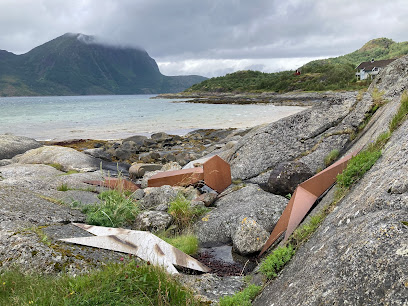
Mannen (400)
43.2 km
Discover the breathtaking hiking trails of Mannen in Leknes, where stunning fjord views meet serene nature for an unforgettable outdoor adventure.

Offersøykammen Trail Head
44.2 km
Explore the breathtaking Offersøykammen Trail Head in Norway, where stunning views and diverse landscapes await every hiker.

Naustholmen Adventure Island
44.6 km
Experience the serene beauty and exhilarating adventures of Naustholmen Adventure Island, a hidden gem in Norway perfect for nature lovers and thrill-seekers alike.
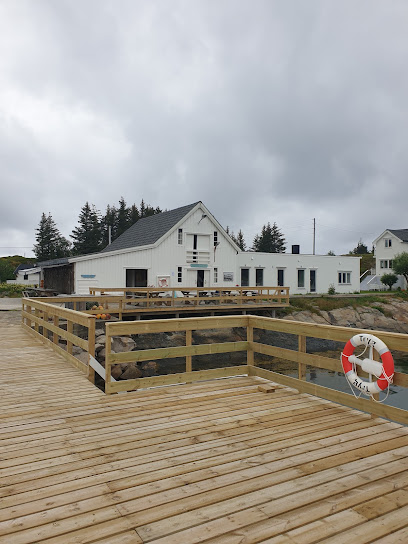
Unmissable attractions to see
Visit Lofoten
0.1 km
Experience the breathtaking beauty and rich culture of Lofoten, Norway's stunning archipelago known for its majestic landscapes and vibrant fishing villages.

Magic Ice Lofoten
0.2 km
Experience the artistic brilliance of ice sculptures at Magic Ice Lofoten, a unique bar and gallery in the heart of Svolvær, Norway.

Svolvær Promenade
0.2 km
Experience the breathtaking views and vibrant culture at Svolvær Promenade, a stunning waterfront destination in Norway's Lofoten Islands.
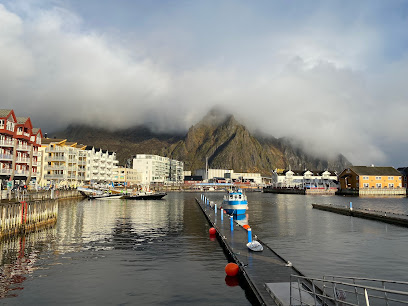
Svolvaer
0.4 km
Explore Svolvær, the picturesque gateway to Lofoten, where breathtaking landscapes meet rich cultural experiences and outdoor adventures await.

Séchoirs à morues
0.6 km
Explore the historic Séchoirs à Morues in Svolvær, where Norwegian fishing traditions come to life amidst stunning Lofoten landscapes.

Svolværgeita
1.9 km
Experience the breathtaking beauty and adventure of Svolværgeita, a premier hiking destination in Norway's stunning Lofoten Islands.

Djevelporten
2.6 km
Explore Djevelporten, Norway’s stunning natural gateway, where breathtaking views and thrilling hikes await every adventurous traveler.

Vågan Church
3.8 km
Discover the architectural beauty and cultural significance of Vågan Church, a serene cathedral nestled in Norway's stunning Lofoten Islands.

Lofotmuseet
5.3 km
Explore the rich fishing heritage of the Lofoten Islands at Lofotmuseet, a captivating history museum in Kabelvåg with stunning coastal views.

Lofotakvariet - The Lofoten Aquarium
5.4 km
Dive into the captivating underwater world at Lofotakvariet, the Lofoten Aquarium, where marine life thrives in a stunning natural setting.
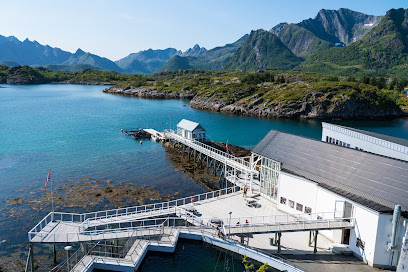
Lofot Fjordview
10.0 km
Explore the stunning vistas of Lofot Fjordview, where Norway's dramatic landscapes and serene fjords create unforgettable memories.

Sildpolltjønna Ship Wreck Lofoten Norway
11.4 km
Explore the haunting beauty of the Sildpolltjönna ship wreck in Lofoten, Norway, where history meets breathtaking natural landscapes.

Gimsøystraumen Bridge
13.3 km
Discover the Gimsøystraumen Bridge in Kleppstad, Norway, a stunning architectural wonder offering breathtaking views and a glimpse into Norway's engineering prowess.

Presten
15.0 km
Experience breathtaking views and tranquility at Presten in Kabelvåg, a must-visit tourist attraction for nature lovers in Norway.

Cross Ocean’s fireplace
15.2 km
Experience the breathtaking beauty of Lofoten at Cross Ocean's Fireplace, a serene spot for relaxation and stunning views in Kabelvåg, Norway.

Essential places to dine
Paleo Arctic
0.1 km
Savor authentic Norwegian cuisine at Paleo Arctic in Svolvær – a culinary gem nestled in the breathtaking Lofoten Islands.
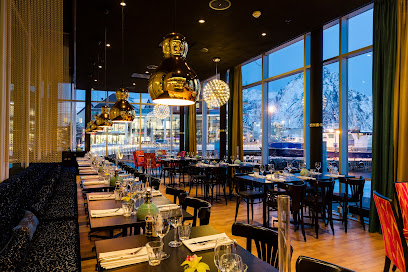
Sakura Lofoten Svolvær
0.1 km
Experience exquisite Japanese cuisine blended with fresh local flavors at Sakura Lofoten in Svolvær—where every dish tells a story.
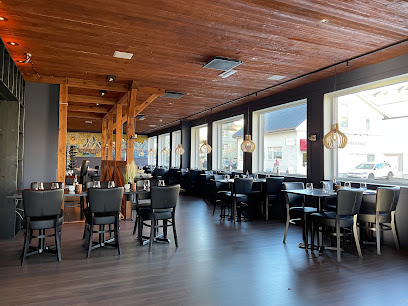
Nordis Restaurant Svolvær
0.2 km
Experience the best of local cuisine at Nordis Restaurant Svolvær - where fresh ingredients meet Norwegian tradition in every bite.

Svolvær Restaurant
0.2 km
Experience authentic Norwegian cuisine with breathtaking views at Svolvær Restaurant in picturesque Svolvær.

Bacalao
0.2 km
Experience authentic Norwegian cuisine at Bacalao in Svolvær – where fresh ingredients meet stunning views.
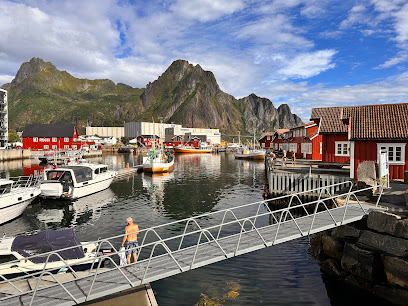
Fellini Lofoten As
0.2 km
Experience authentic Italian cuisine at Fellini Lofoten - where delicious pizzas meet breathtaking views in Svolvær.
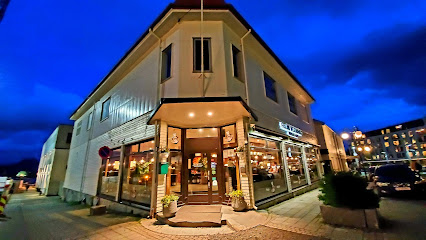
Restaurant Nihao Lofoten
0.2 km
Experience authentic Chinese flavors in Svolvær at Restaurant Nihao – where culinary tradition meets breathtaking Lofoten scenery.
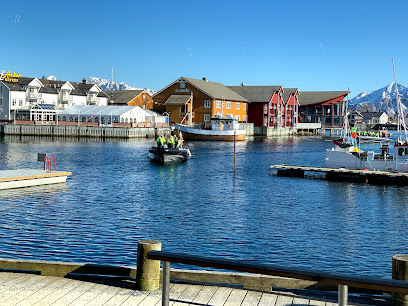
Restaurant The Kitchen
0.3 km
Experience exquisite Norwegian cuisine amidst breathtaking views at The Kitchen in Svolvær.

Børsen Spiseri
0.7 km
Discover Børsen Spiseri in Svolvær: where exquisite local cuisine meets stunning waterfront views for an unforgettable dining experience.
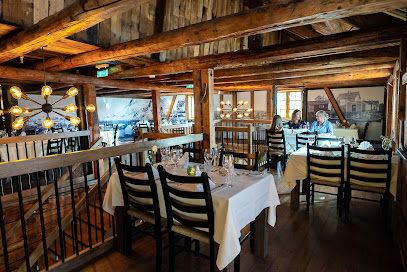
Brygga Restaurant & Bar - Lofoten
4.3 km
Experience authentic Norwegian flavors at Brygga Restaurant & Bar in Kabelvåg - a culinary haven amidst stunning Lofoten scenery.
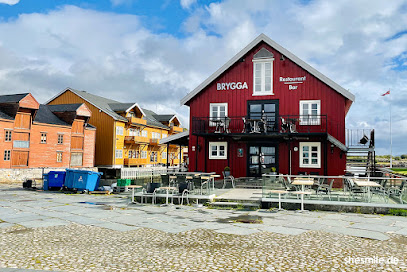
Restaurant Nyvågar
5.4 km
Experience exquisite seafood and authentic Norwegian cuisine at Restaurant Nyvågar in Kabelvåg's stunning coastal setting.

Heimbrygga Restaurant & Accommodation
8.2 km
Discover authentic Norwegian flavors at Heimbrygga Restaurant & Accommodation in Skrova – where culinary excellence meets coastal charm.

Livland Gård
11.3 km
Experience authentic Norwegian cuisine at Livland Gård in Laukvika - where fresh ingredients meet breathtaking views.

Klatrekaféen
17.1 km
Discover Klatrekaféen in Henningsvær: Enjoy local flavors amidst breathtaking views in this charming Norwegian café.
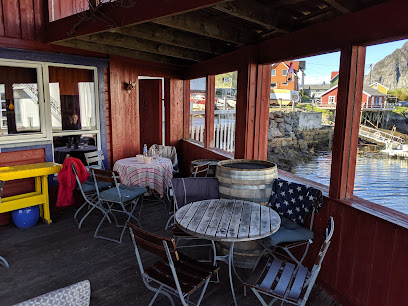
SUSHINORD
17.2 km
Discover authentic Japanese flavors at SUSHINORD in Henningsvær—where fresh ingredients meet stunning views.

Markets, malls and hidden boutiques
Audhild Viken Svolvær
0.1 km
Explore Audhild Viken Svolvær for unique Norwegian souvenirs and handcrafted gifts that embody the spirit of Norway's rich culture.

Lofotenshop
0.1 km
Explore Lofotenshop in Svolvær for unique gifts and local treasures that embody the spirit of the Lofoten Islands and Norway.
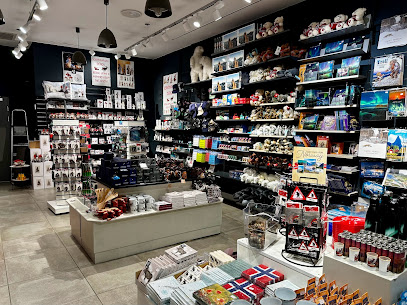
Lofoten Bryggeri
0.2 km
Explore Lofoten Bryggeri for a taste of local Norwegian flavors, artisanal goods, and a unique grocery shopping experience in Svolvær.

Møbelringen Lofoten
0.3 km
Explore Møbelringen Lofoten for exquisite Scandinavian furniture and home decor amidst the stunning landscapes of Svolvær.

JACK & JONES
0.4 km
Shop the latest trends in men's fashion at JACK & JONES, Svolvær's premier clothing store for style and quality.

Alti Svolvær
0.4 km
Explore Alti Svolvær: A shopping paradise in the heart of the Lofoten Islands, where local culture meets modern retail experiences.

LIAS Bruktbutikk
0.4 km
Explore LIAS Bruktbutikk, a thrift store in Svolvær offering an eclectic mix of second-hand treasures perfect for any vintage lover.
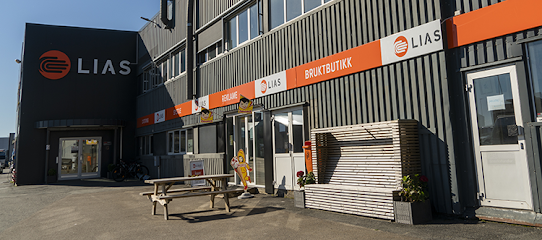
Rødsand
0.4 km
Discover the essence of Norway at Rødsand, where unique souvenirs and local crafts await to tell your travel story.

Northern Alpine Guides
4.4 km
Explore Norway's breathtaking landscapes with Northern Alpine Guides, your expert partner in mountaineering, rock climbing, and skiing adventures.

Lofoten Wool / Henningsvær
17.3 km
Discover authentic Norwegian craftsmanship at Lofoten Wool in Henningsvær, your go-to spot for exquisite sheepskin and wool products.
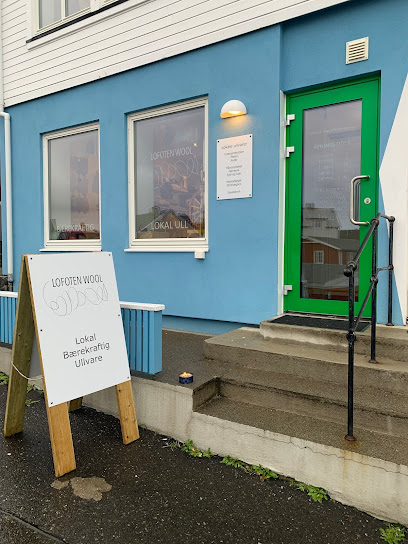
Rokken Design
17.5 km
Explore Rokken Design in Henningsvær for a unique blend of Nordic fashion and local craftsmanship, making your trip truly memorable.
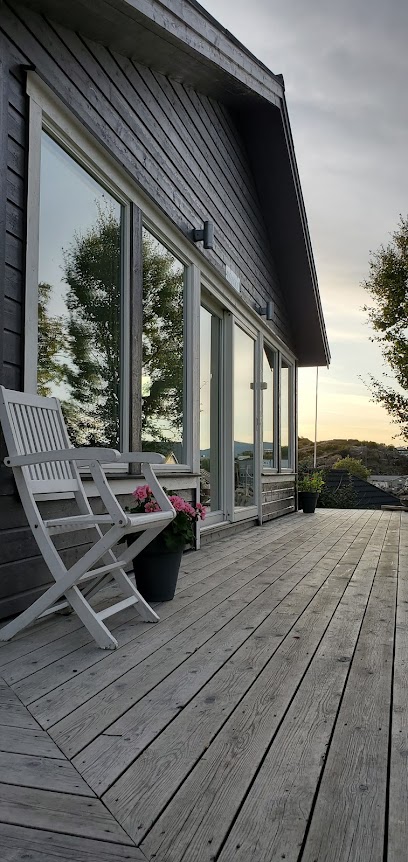
Gimsøy Landhandel Lofoten AS
18.0 km
Explore a delightful blend of local groceries, homemade meals, and crafting supplies at Gimsøy Landhandel in the heart of Lofoten.

Pause KERAMIKK v / Gry A Strømnes
31.0 km
Explore the artisan world of handcrafted pottery at Pause KERAMIKK in Stamsund, Norway, where each piece tells a story.
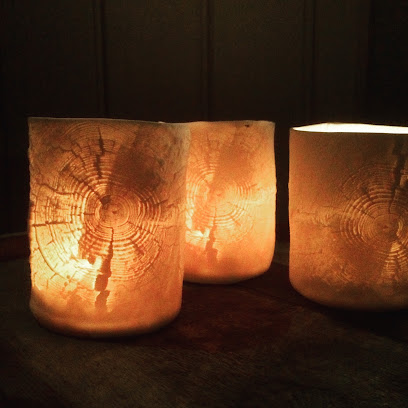
Brukt og nytt
32.1 km
Explore Brukt og Nytt in Stamsund for an unforgettable shopping experience filled with unique treasures and local charm.

Lofoten Wool / Høystålet
34.4 km
Discover the essence of Lofoten at Lofoten Wool, a unique knit shop offering local wool products and an immersive cultural experience.
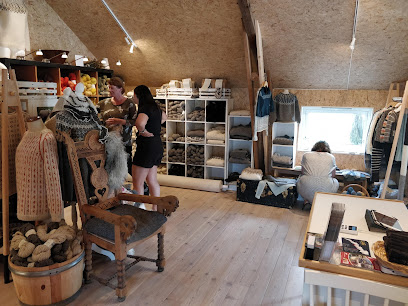
Essential bars & hidden hideouts
Styrhuset Pub
0.0 km
Discover Styrhuset Pub: A Cozy Retreat for Drinks and Local Culture in the Heart of Svolvær.
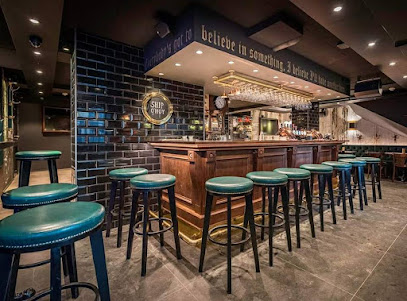
Molldøra Lounge & Bar
0.1 km
Experience the cozy charm and breathtaking views of Molldøra Lounge & Bar in Svolvær, the perfect place to relax and enjoy local beverages.
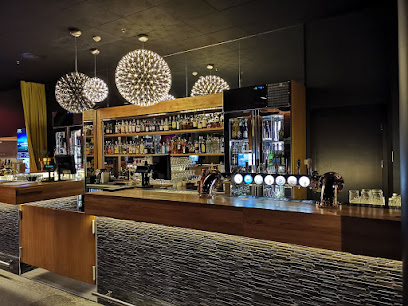
Telegrafen pub og bar
0.2 km
Experience the vibrant atmosphere of Telegrafen Pub og Bar, where local culture meets delightful drinks and delicious food in Svolvær.
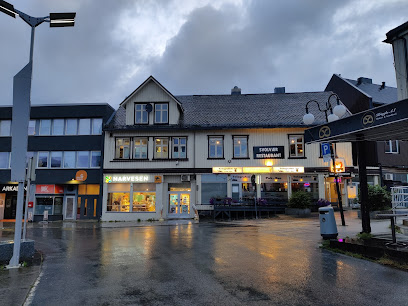
Scandic Vestfjord Lofoten
0.2 km
Discover the comfort of Scandic Vestfjord Lofoten, your gateway to the breathtaking beauty of the Lofoten Islands.
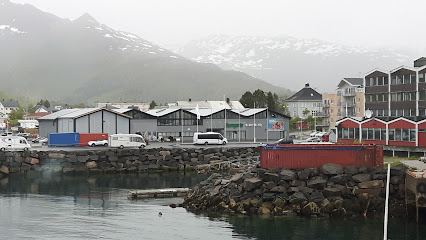
Anker Brygge Bryggebaren
0.3 km
Discover Anker Brygge Bryggebaren - a lively seaside pub in Svolvær with stunning views and a vibrant atmosphere for travelers.
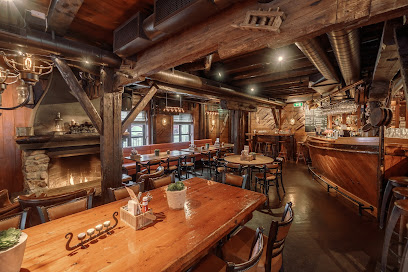
Anker Brygge
0.4 km
Discover the beauty and flavors of Anker Brygge, a premier bar, restaurant, and hotel in the heart of Svolvær, Lofoten Islands.

Champagne-Pikene
17.2 km
Experience the charm of Henningsvær at Champagne-Pikene, where fine drinks meet local culture in a stunning coastal setting.
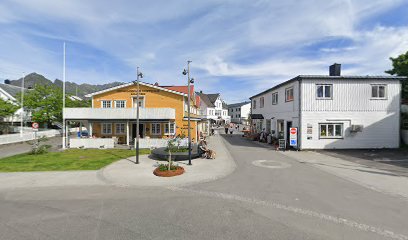
Rolf's Bar
21.4 km
Discover Rolf's Bar: A vibrant hub of local culture and nightlife on Austvagsoya, perfect for unwinding after a day of exploration.

Live Lofoten Pub (Hagbaren)
32.0 km
Discover the vibrant atmosphere of Live Lofoten Pub in Stamsund, a cultural hub for enjoying local brews and connecting with fellow travelers.
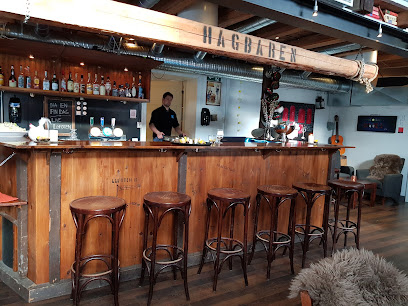
Skjærbrygga & Burekka AS
32.0 km
Discover the delightful fusion of a cozy pub and seafood restaurant at Skjærbrygga & Burekka AS in Stamsund, Lofoten.
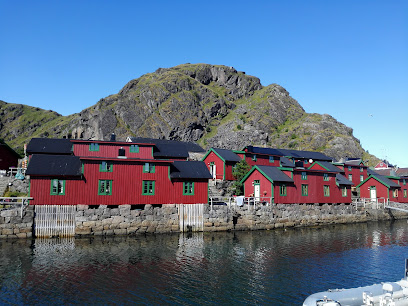
Rødbrygga
40.2 km
Discover Rødbrygga, the heart of Stokmarknes, where local cuisine meets a vibrant pub atmosphere, perfect for every traveler.
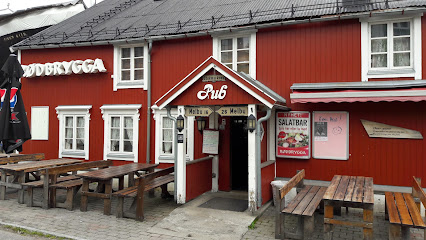
Lofotpuben As
40.7 km
Experience the vibrant nightlife of Leknes at Lofotpuben, where local brews and live music create an unforgettable atmosphere.

SKJENKERIET LOFOTEN AS
40.7 km
Experience the lively atmosphere and local flavors at SKJENKERIET LOFOTEN AS, a must-visit bar in the heart of Leknes, Norway.
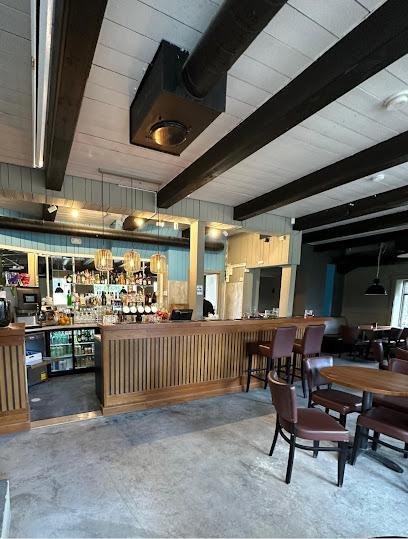
Oriana Kro
54.9 km
Discover the charm of Oriana Kro, a unique pizza restaurant in Nusfjord, serving delicious pizzas in a cozy cellar setting with a Scandinavian twist.
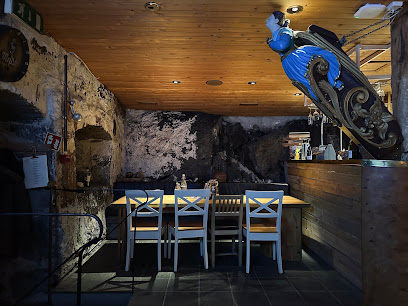
The tide hotel
74.6 km
Experience the beauty and flavors of Norway at The Tide Hotel in Sørvågen, where comfort meets adventure in a stunning landscape.

Nightclubs & after hour spots
Lofoten Links
21.7 km
Discover Lofoten Links: A breathtaking golf course in Norway's stunning landscape, perfect for adventure and relaxation.

Handlevogndrifting AS
40.2 km
Discover the electrifying nightlife at Handlevogndrifting AS in Leknes, where music, dancing, and unforgettable memories come together.




